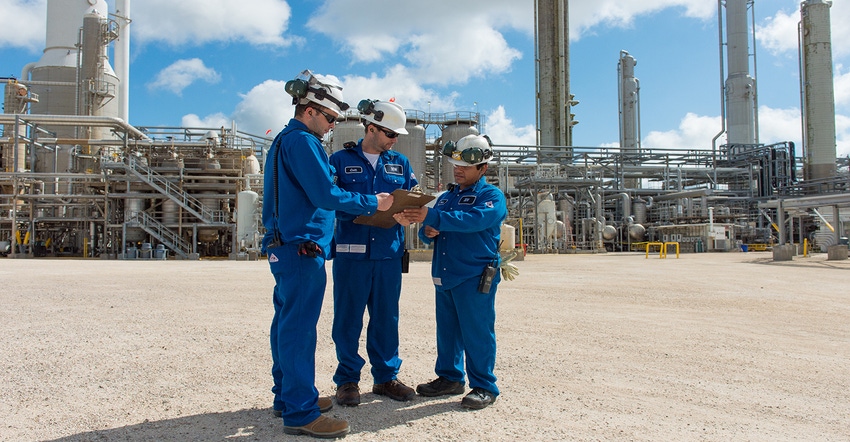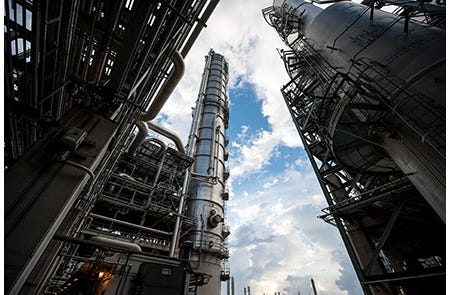Five plants in the United States, Spain, Netherlands, and Germany have been recognized for their compliance with rigorous tracking of sustainable feedstock use.
December 15, 2021

Dow announced this week that five of its largest global manufacturing sites have received International Sustainability & Carbon Certification (ISCC) PLUS recognition for their compliance with rigorous tracking of sustainable feedstock use. The sites are located in Freeport, TX; Tarragona, Spain; Terneuzen, Netherlands; and Boehlen and Schkopau, Germany. This marks a major step in the company’s global strategy to close the loop on plastic waste and expand its capabilities for circular plastics using advanced recycling and bio-based feedstocks, said Dow.
ISCC is a globally applicable sustainability certification system covering all sustainable feedstocks. The certification was awarded following an independent, external audit to ensure product supply chains are fully traceable and that Dow and its suppliers are adhering to and accelerating sustainable practices.
“This third-party validation is a critical step in our sustainability journey to design and produce fully circular products,” said Nestor de Mattos, North America Commercial Vice President for Packaging & Specialty Plastics. “Our intent is to help our customers reach their circularity targets by providing 100% recyclable solutions and offering products made with recycled content.”
|
Each of the five Dow sites audited by ISCC have been awarded the PLUS certification as the result of different innovations that are helping to contribute toward more sustainable systems, said Dow in its announcement. The circular plastics produced at the Freeport location (shown left) can be used to develop flexible food packaging made from mono-material polyethylene. At the Terneuzen site, the crackers and all PE trains have been recognized, while Tarragona has been certified on its cracker, octene plant, and polymerization plants. At Boehlen, both its cracker and storage in Rostock and Teutschenthal have been certified, while the Schkopau site received accreditation for its plant that produces DOWLEX polyethylene resins.
“We continue to safely and systematically leverage the industry-leading feedstock flexibility of our crackers to deliver what our downstream customers value,” said Keith Cleason, Vice President of the Olefins, Aromatics, and Alternatives business. “ISCC PLUS certification enables us to trace with precision the amount of ethylene produced with sustainable feedstocks as we drive conversion and emission efficiencies to further differentiate the footprint of our operations and to supply value-added sustainable products to our customers.”
These certifications will play a significant role in accelerating Dow’s sustainability goals progress. This includes reaching its target to stop the waste by enabling one million metric tons of plastic to be collected, reused, or recycled by 2030, and to close the loop on plastic waste by enabling 100% of Dow products sold into packaging applications to be reusable or recyclable by 2035.
“We are delighted to continue our progress in certifying our European manufacturing facilities as it substantiates the important progress Dow is making toward solving the plastic waste problem and becoming carbon neutral,” said Marc van den Biggelaar, Senior Business Sustainability Director from Dow EMEA. “As we respond to customer and consumer demand for more sustainable materials, we partner to ensure our suppliers and products meet expectations for more eco-friendly practices.”
Future ISCC certifications will be announced for other sites across the world, said Dow.
You May Also Like



